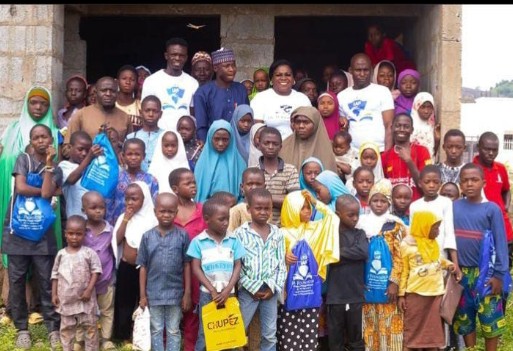
With Nigeria’s out-of-school children figure still high at 18.3 million, an international charity has initiated fresh moves to tackle the crisis.
The Ibironke Adeagbo Foundation (IAF), based in England, is determined to contribute significantly to addressing the challenge.
IAF has been campaigning for intensified efforts to address out-of-school syndrome in Nigeria, where UNICEF and UNESCO have reported high figures of out-of-school children year after year.
In a statement on Friday, the founder of the foundation, Mrs. Ibironke Adeagbo, said the new initiative was aimed at supporting the Renewed Hope Agenda of the Federal Government.
Adeagbo said the foundation was working on what she described as a “roadmap,” to be unveiled this month, to address the problem and improve early-child education in Nigeria.
According to her, the foundation has mobilized efforts to support the Federal Government in overcoming this challenge.
“With over 18 million children out of school, Nigeria’s education landscape faces an unprecedented crisis.
“The nation’s economic and social future depends on our collective commitment to quality education,” the British-born Nigerian, who resides in London, said.
She noted that Nigeria’s education system is grappling with challenges, including inadequate infrastructure and underfunding.
“The foundation is committed to driving actionable solutions at this point in time because we must secure a brighter future for our out-of-school children and Nigerian education in general.
“Education is the cornerstone of development and progress,” Adeagbo added.
Adeagbo disclosed that an international summit on education has been scheduled for Nov. 26 to ignite discussions on addressing the challenge.
“We cannot afford to overlook the urgent needs of the education sector,” she said.
The summit, titled: “Street to School: A Tech-Based Solution to Address Nigeria’s Education Crisis,” will spark critical discussions aimed at achieving substantial and measurable changes in Nigeria’s education landscape.
Adeagbo called on the Federal Government to increase budgetary allocation to education in line with UNESCO’s recommendation of 15 to 20 percent of the total budget.
She also advocated for strengthened partnerships with civil society groups to fund educational initiatives aimed at tackling challenges in the education sector, especially the out-of-school crisis.
Adeagbo said Nigeria should implement initiatives specifically targeted at marginalized groups, including girls, children with disabilities, and those from low-income families.
The IAF founder stressed the need for the government to use technology to expand learning opportunities, especially in remote communities and underserved areas.
Adeagbo also urged Nigeria to prioritize the training of teachers to equip them with the skills needed to deliver quality education.
“We believe that Nigeria can establish a sustainable and inclusive educational framework that will leave no child behind,” she stated.
The News Agency of Nigeria (NAN) reports that insecurity caused by terrorism, banditry, and kidnapping has significantly contributed to the out-of-school crisis in Nigeria.
However, the Federal Government has been working to stamp out these negative activities to allow children unrestricted access to classrooms.






